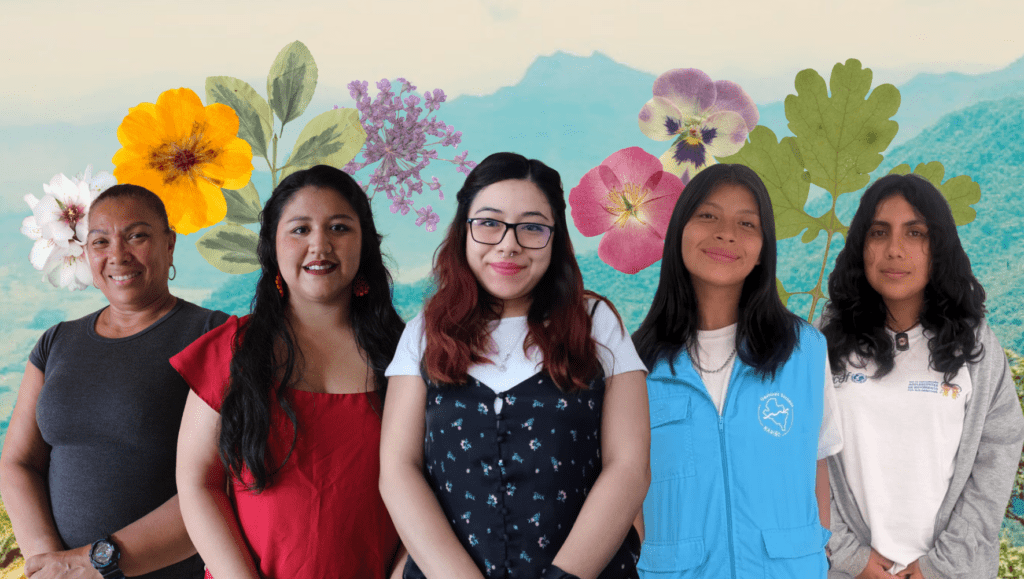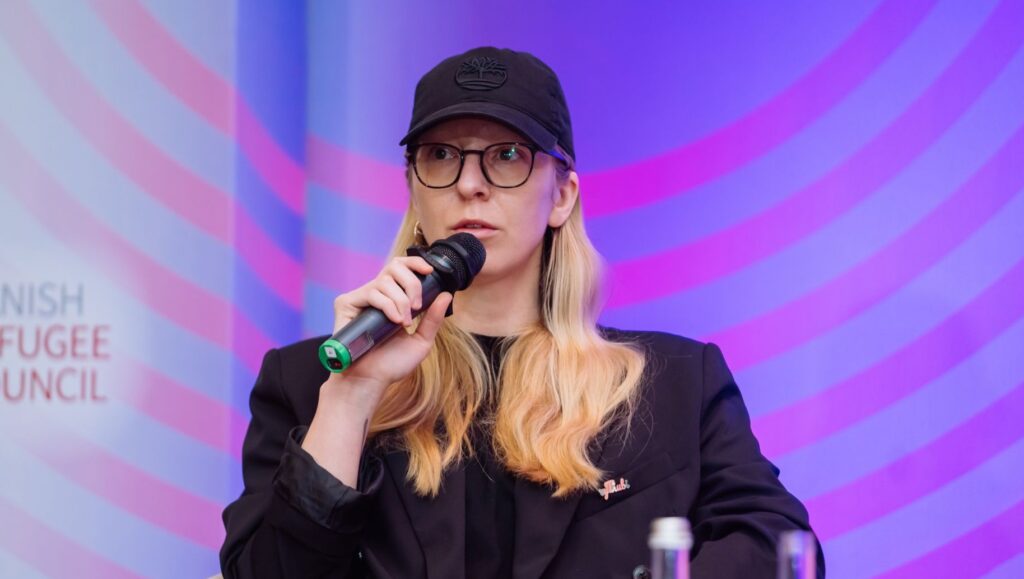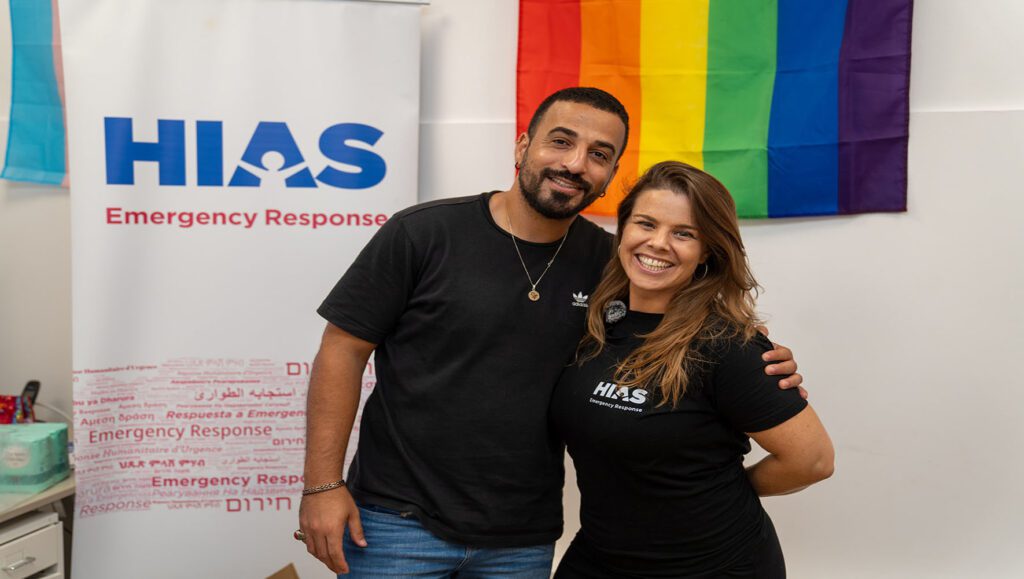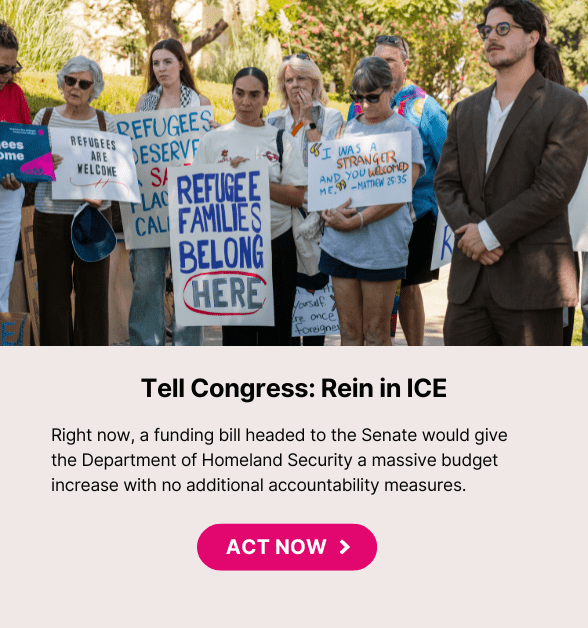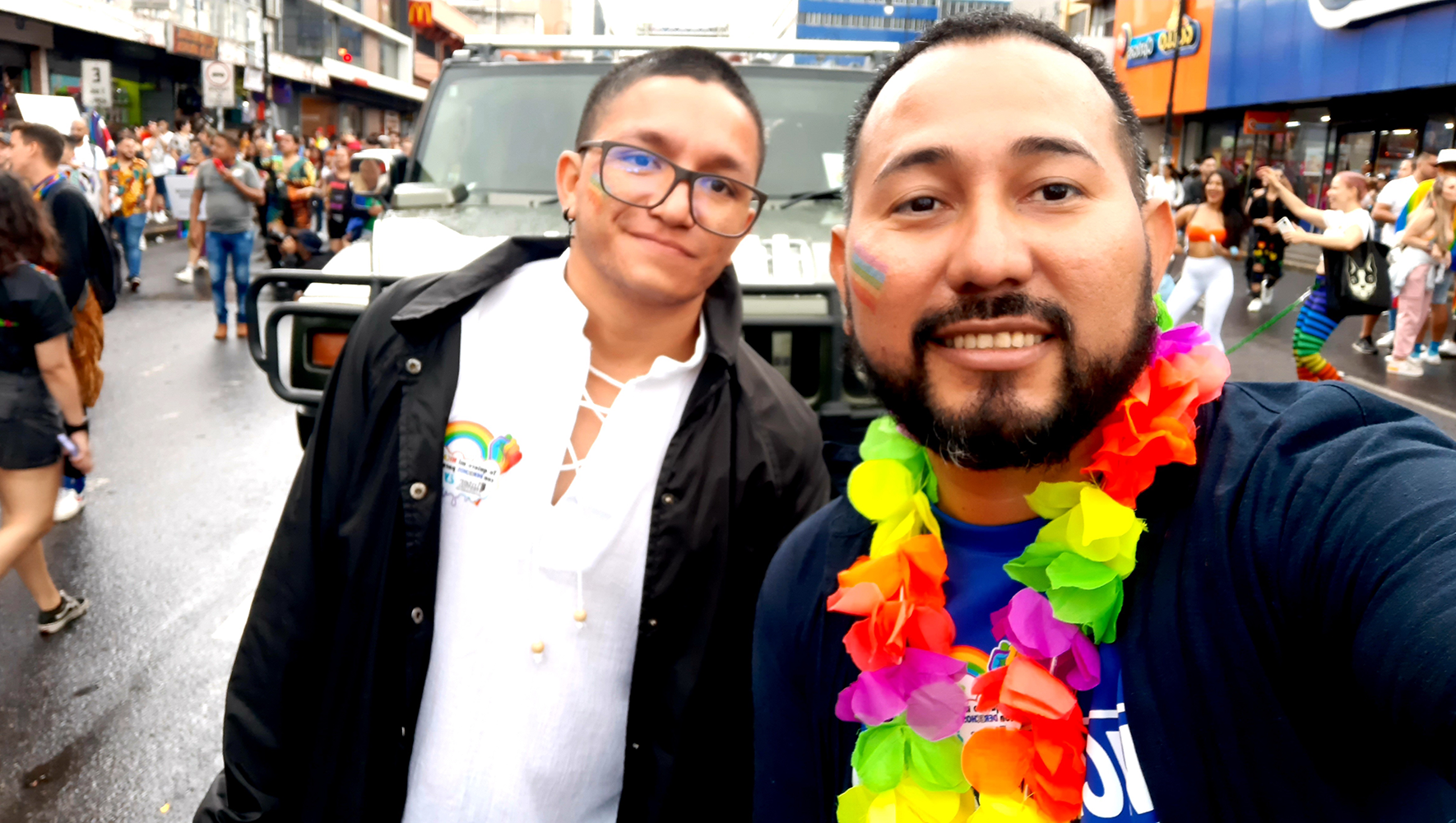
For Magdiel Galeano Gómez and his husband Jeffrey*, both refugees from Nicaragua living in Costa Rica, the idea for their business, Jeff Creative, first began to solidify as they collected beautiful shells and rocks during a walk on the beach.
From there, the plan to use upcycled materials to create artisanal home decorations took shape. With encouragement from one of their university professors, they began to sell their products. But while they were passionate about the business, they were also struggling.
“If we had money for the house, we didn’t have money for food,” said Galeano Gómez. Both were still in university, and all the money they made from the business was being reinvested in purchasing the parts that they couldn’t upcycle, such as wiring for lamps.
That’s when HIAS Costa Rica entered the picture. When a staff member reached out to see if the couple would want to participate in an employability program, Galeano Gómez responded that they had actually already started a business.
HIAS supported the couple with cash assistance as they finished university and built their business, while also providing them with education on how to run a business through the organization’s graduation model.
“HIAS entered at the exact moment that was just perfect for us,” explained Galeano Gómez. “They were giving us that push that we needed, and then we really got sharp and we registered the brand, thanks to this training with HIAS.”
The journey to this point has not been easy for Galeano Gómez, who came out to his family at age 16 “just so that [he] could be at ease.” At the same time, he began to be involved in political activism; in his eyes, his identity and political activism are intrinsically linked.
“I’m a political activist, but I am also an activist for the LGBTIQ+ community,” he said. “It’s not only that I need to be able to go and vote, but that I can also be elected, because I have the capability and the capacities. In Nicaragua, the LGBTIQ+ community is seen as a joke… and it should not be like that.”
Initially, he was a part of the Sandinista National Liberation Front, whose leader Daniel Ortega has been in power since 2007, having previously led the country from 1979 to 1990. In 2016, Galeano Gómez left the party, which he recognized to be a “dictatorship.” This put him in significant danger and eventually led to him having to flee Nicaragua.
On Mother’s Day 2018, Galeano Gómez attended a protest in solidarity with the mothers of those who had been killed in the preceding months of protests against the administration. Paramilitary groups opened fire on the crowd, killing 19 people. Galeano Gómez witnessed the deaths of a teenager and 30-year-old man mere meters away from him.
“Twice the government tried to murder me because I raised my voice,” he said. After the first attempt, which came just weeks after the protest, he wasn’t scared; after the second, he called his workplace and told them he would not be coming in due to threats that had been made to burn down the shop. He never returned to his home or his work.
He traveled to the Costa Rican embassy, where he was able to get a visa to enter Costa Rica and assistance to safely leave Nicaragua. Once he arrived in Costa Rica, he had to navigate the process of applying for asylum – something he knew nothing about. That’s when he was referred to HIAS, who he said supported him through every step of the asylum process.
“HIAS was there until the end, until I was given the status of refugee,” he reflected. “If I had not found HIAS, I don’t know what I would have done. In that moment I felt like I had support from somebody.”
Galeano Gómez says that he has tried to “delete” his memories of the first few months in Costa Rica. Everything that he had built for himself in Nicaragua was gone – his education in public accounting, which the government wiped from his record; his job and apartment; and his family, who no longer speak to him due to his political activism. He found himself sleeping on the floor of a house that a friend rented for him and his community; he shared the 3-bedroom home with nearly 20 other members of the LGBTQ community.
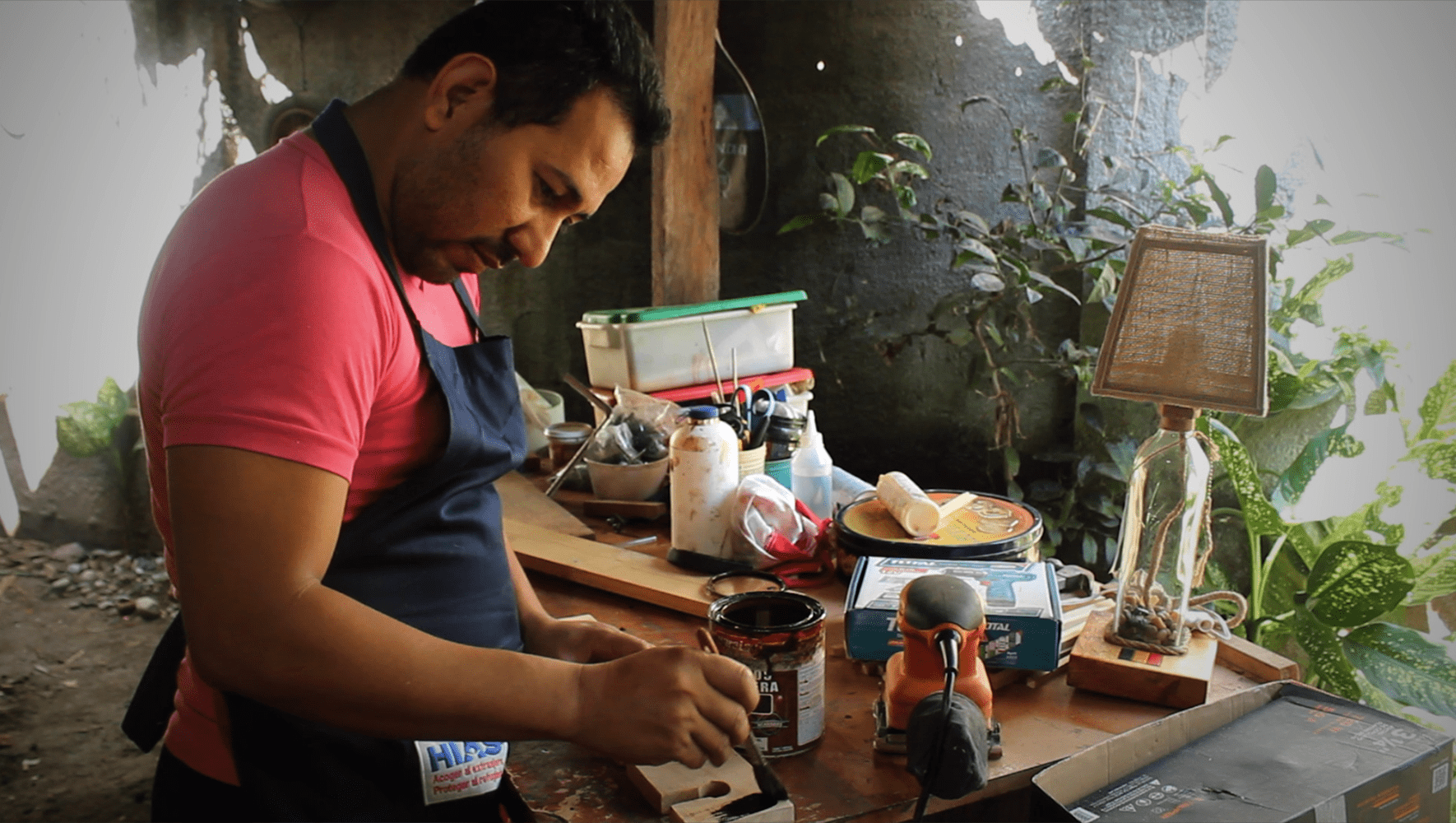
Magdiel Galeano Gómez, a refugee from Nicaragua now living in Costa Rica, works on a product for his business, Jeff Creative. (SideXSide Studios/HIAS)
That’s where he first met Jeffrey. At first they were friends, and after a month decided to pool their earnings to rent an apartment together and support each other. Nearly four years later, they are partners in life and in business – which Galeano Gómez said is thriving thanks to the business tools that HIAS gave them.
“At HIAS, we advocate for refugees and provide them with tools, resources, and a supportive environment, but in the end our clients themselves build the lives they want, with love and freedom,” said Galo Quizanga, HIAS’ director of economic inclusion. “The economic inclusion of refugees boosts economies, generates jobs, creates resilience, prevents gender-based violence, and provides the opportunity to start a new life in safety and dignity.”
Outside of the business, Galeano Gómez continues his work as a political activist, focusing his attention on LGBTQ and migrant issues and leading a group called Diverse Voices. Recently, the group’s advocacy paid off in a big way: Costa Rica’s penal code was modified to formalize hate crimes against a number of groups, including LGBTQ people and migrants. He contributed language specifically protecting migrants to the bill, inspired by a vicious attack that left his friend, a fellow LGBTQ Nicaraguan migrant, in a coma and ultimately caused him to lose one of his legs. Not only was the language accepted, but he was invited to the signing of the bill into law.
In Costa Rica, Galeano Gómez feels safe. He has the freedom not only to pursue opportunities in business and politics and to express himself, but to give back to the community with his advocacy and environmental efforts. He feels that the future is limitless.
“It’s important to get training, to educate ourselves to break paradigms and break away from the forms of discrimination that exist,” he said during a recent interview. “We can achieve unexpected changes that not only help us, but that will help an entire nation.”
Watch our recent video to learn more about HIAS’ economic inclusion programs and see his business in action.
* Jeffrey is identified by first name only for his protection.
